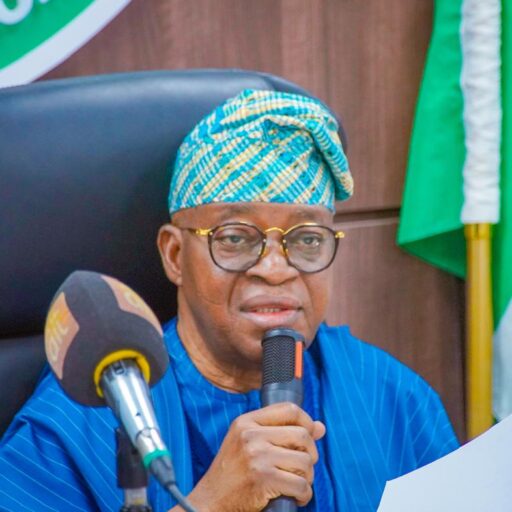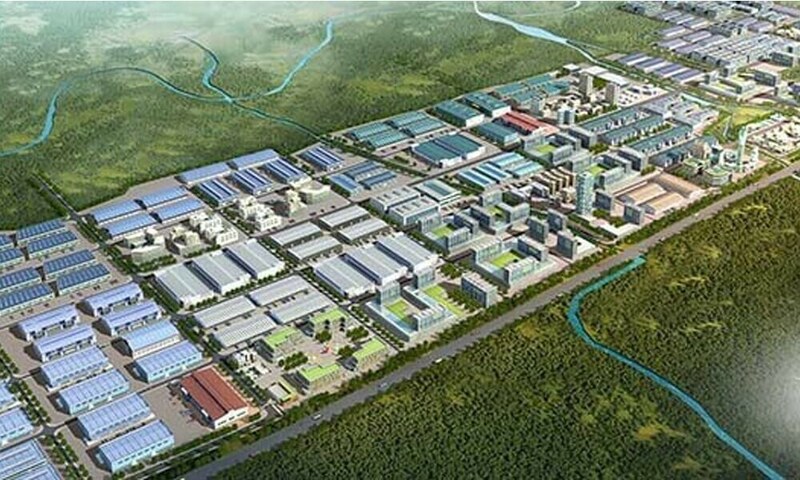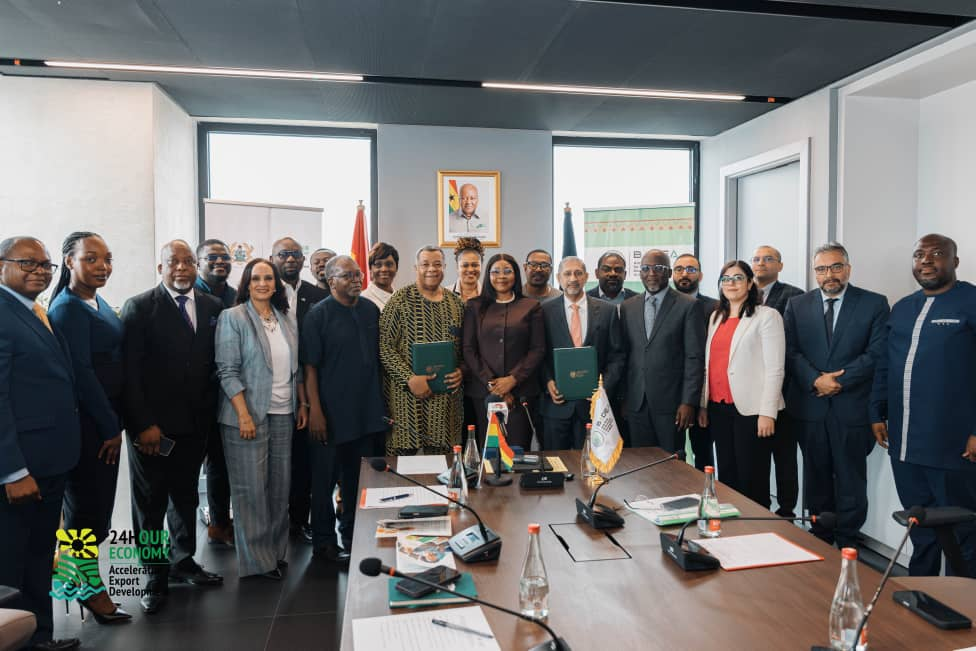By danivert
Copyright thesun

From Idu Jude Abuja
The Minister of Marine and Blue Economy, Adegboyega Oyetola, has called on international investors to seize the vast opportunities in Nigeria’s marine and blue economy, describing the sector as a gateway to Africa’s economic transformation.
Speaking on Thursday at the Africa Maritime and Shipping Assembly, held at the headquarters of the International Maritime Organization (IMO) as part of the ongoing London International Shipping Week (LISW).
Oyetola, who was represented by the Director General of the Nigerian Maritime Administration and Safety Agency (NIMASA), Dr. Dayo Mobereola, urged investors to look beyond short-term gains and embrace the long-term benefits of investing in Nigeria’s fast-evolving maritime landscape.
Delivering a keynote address on the topic “Navigating Regulatory Seas: Steering Africa’s Maritime Governance Towards Seamless Trade,” he underlined Nigeria’s commitment to regulatory reforms, port modernisation, maritime security, and sustainable shipping practices as critical pillars that make the country an attractive investment destination.
“Our oceans and inland waterways are our lifeblood, our highways to prosperity, and the very arteries that will fuel the African Continental Free Trade Area,” Oyetola said, stressing that Nigeria is committed to unlocking the full potential of its marine resources.
He noted that the government’s ambitious reforms are geared towards positioning the country as the maritime hub of West and Central Africa.
The Minister highlighted Nigeria’s significant progress in maritime security, citing the success of the Deep Blue Project, which has eliminated piracy in Nigerian waters and contributed to a sharp decline in incidents across the Gulf of Guinea. He added that Nigeria has recorded three consecutive years without piracy attacks in its territorial waters, a feat that has earned commendations from the International Maritime Bureau.
“This is proof that Nigeria is a safe destination for maritime investments. Security of our seas is non-negotiable, and we are committed to sustaining these gains through technology-driven surveillance, strong legal frameworks such as the SPOMO Act, and regional collaboration,” he declared.
The Minister further highlighted Nigeria’s expanding port infrastructure, with the landmark Lekki Deep Sea Port serving as a testament to the success of public-private partnerships. With its state-of-the-art facilities and capacity to berth the world’s largest vessels, Lekki Port is expected to serve as a vital transshipment hub for landlocked African nations.
“We are now actively collaborating to scale up transshipment operations for countries such as Chad, Niger, and Burkina Faso, positioning Nigeria as the maritime hub of the sub-region,” he said.
The Minister also emphasized the importance of sustainable growth, insisting that the blue economy must not only generate profits but also protect the environment. He reaffirmed Nigeria’s commitment to green shipping practices, eco-friendly port infrastructure, and climate-resilient coastal management strategies.
Beyond security and sustainability, Minister Oyetola stressed the urgency of regulatory harmonisation across Africa’s maritime sector. He noted that fragmented regulations and non-tariff barriers undermine the objectives of the African Continental Free Trade Area.
“It is a paradox that we seek to remove tariffs through AfCFTA while leaving non-tariff barriers, such as disparate port procedures and differing customs regulations, largely intact,” he said.
He called for the accelerated implementation of continental instruments such as the Revised African Maritime Transport Charter to create a predictable and investor-friendly environment.
Nigeria’s participation in the London International Shipping Week comes at a time when the global maritime industry is recalibrating for resilience, sustainability, and digital transformation. LISW is recognised as one of the most influential events on the global shipping calendar, bringing together policymakers, regulators, investors, shipowners, and maritime professionals from around the world. For Nigeria, Oyetola noted, the event presents an unparalleled opportunity to showcase the country’s readiness to attract foreign direct investment into its maritime value chain and to strengthen its advocacy for Africa’s interests in global maritime governance.
The Minister also used the platform to seek support for Nigeria’s candidature for election into Category C of the IMO Council for the 2026–2027 biennium. He emphasised that Nigeria’s aspiration goes beyond national interest.
“Our campaign is not just about a seat for Nigeria; it is about securing a stronger voice for the entire African continent. A vote for Nigeria is a vote for a proven leader in maritime security, an advocate for African interests, and a champion of global collaboration,” he said.
Oyetola appealed to investors and African maritime stakeholders alike to harness the sector’s immense opportunities.
“The regulatory seas ahead may be turbulent, but with a clear vision, a firm resolve, and a spirit of collaboration, we can navigate them successfully. Let us commit to building an African maritime sector that is secure, sustainable, and seamlessly integrated. Let us turn our shared challenges into collective strengths,” he urged.



